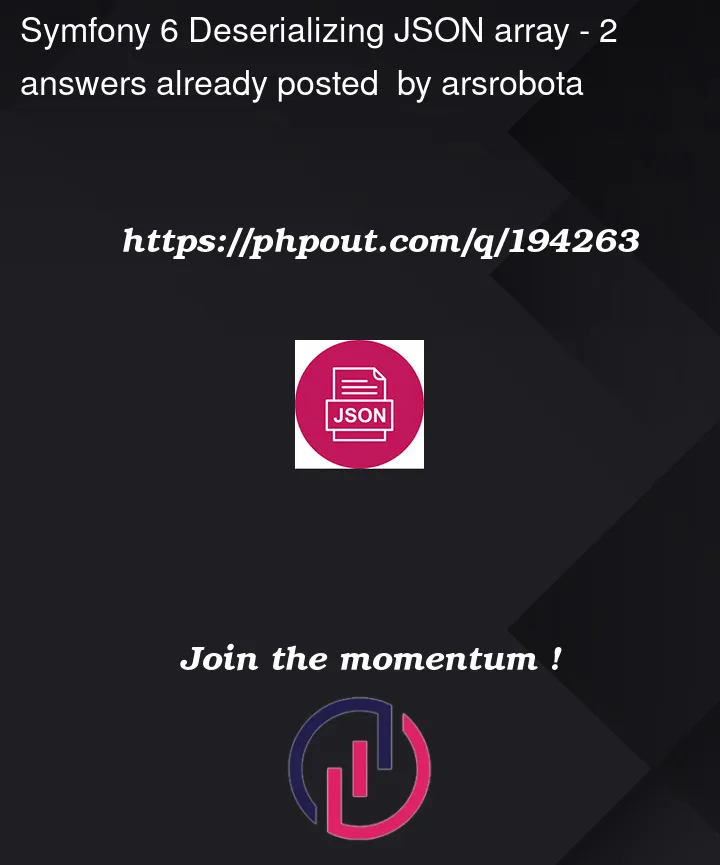I receive a JSON string containing an array of objects similar to this:
{"expert": "foo", "username": "bar", "activity": [{"action": "RFDF", "count": 172}","{"action": "RETA", "count": 10},{"action": "AS", "count": 3}]}
I want to decode it into a model like this (I read in documentation to use SymfonyComponentSerializerAnnotationSerializedPath in order to create nested properties):
<?php
declare(strict_types=1);
namespace AppModel;
use SymfonyComponentSerializerAnnotationSerializedPath;
class ActivityModel
{
private string $expert;
private string $username;
private array $activity;
/**
* @var string
* @SerializedPath("[activity][action]")
*/
private string $action;
/**
* @var string
* @SerializedPath("[activity][count]")
*/
private string $count;
/**
* @return string
*/
public function getExpert(): string
{
return $this->expert;
}
/**
* @param string $expert
* @return ActivityModel
*/
public function setExpert(string $expert): self
{
$this->expert = $expert;
return $this;
}
/**
* @return string
*/
public function getUsername(): string
{
return $this->username;
}
/**
* @param string $username
* @return ActivityModel
*/
public function setUsername(string $username): self
{
$this->username = $username;
return $this;
}
/**
* @return array
*/
public function getActivity(): array
{
return $this->activity;
}
/**
* @param array $activity
* @return ActivityModel
*/
public function setActivity(array $activity): self
{
$this->activity = $activity;
return $this;
}
/**
* @return string
*/
public function getAction(): string
{
return $this->action;
}
/**
* @param string $action
* @return ActivityModel
*/
public function setAction(string $action): self
{
$this->action = $action;
return $this;
}
/**
* @return string
*/
public function getCount(): string
{
return $this->count;
}
/**
* @param string $count
* @return ActivityModel
*/
public function setCount(string $count): self
{
$this->count = $count;
return $this;
}
}
When I execute the deserialization in my controller
$encoders = [new JsonEncoder()];
$normalizers = [new ObjectNormalizer()];
$serializer = new Serializer($normalizers, $encoders);
return $serializer->deserialize($json, ActivityModel::class, 'json');
I get an exception Failed to denormalize attribute "activity" value for class "AppModelActivityModel": Expected argument of type "array", "string" given at property path "activity".
Does Serializer need a configuration / context to keep arrays during deserialization ? And as a fallback, how could I simply decode my JSON to an array ?
Thanks by advance.




2
Answers
Here is my AbstractController implementing Serializer through DI:
There are a related question: Failed to denormalize attribute "publishedAt" value
Why you’re not using DI to get the
SerializerInterface?https://symfony.com/doc/current/serializer.html